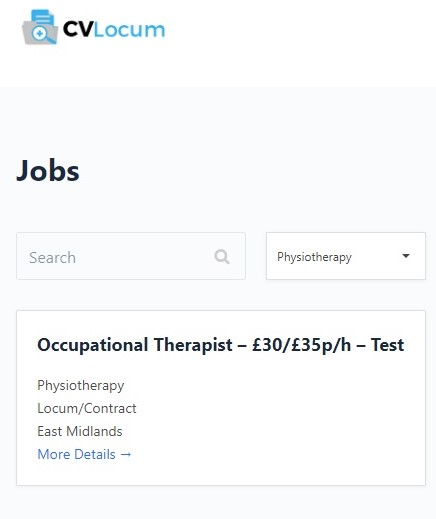Are you looking for help to prepare for your upcoming Band 6 or 7 physiotherapist interview? Check out these helpful example interview questions and answers, be ready to impress!

Becoming a physiotherapist is a fulfilling and rewarding career path. But before you can start treating patients, you need to ace the job interview questions. As a physiotherapist, you should have the right skills, knowledge, and experience to get the job done.
If you want to land your dream job, it’s important to prepare yourself by practicing with these 15 example band 6/7 physiotherapist interview questions and suggested answers. In this blog post, we’ll go through the basic & clinical questions one by one and provide insights on how to answer them.
1. What inspired you to become a physiotherapist?
This is a basic question that will generally set the tone of the interview. The interviewer is looking for your motivation and desire to pursue this career path. Focus on your passion for helping people, your interest in the human body and how it works, and your desire to make a positive impact on people’s lives.
Example Answer:
”As a physiotherapist, my vocation is driven by a desire to help people regain physical independence and wellbeing. Combining a personal commitment to others with a fascination for anatomy and physiology, I am dedicated to making a positive impact on those I serve.
Having experienced the transformative benefits of physiotherapy first-hand, I am driven to empower individuals to take control of their health and optimise their physical function. The dynamic and varied scope of the profession is a constant source of inspiration to me and allows me the opportunity to work with diverse populations across different settings.
Essential qualities such as empathy, compassion, and problem-solving are closely aligned with my own personal traits, enabling me to build meaningful therapeutic relationships and deliver patient-centered care.”
2. What are the core values of the physiotherapy profession, and how have you demonstrated them in your past experiences?
Physiotherapy is a patient-centered profession that puts the well-being of the patient as the top priority. Some of the core values include empathy, communication skills, compassion, respect, integrity, and accountability. Give specific examples of how you’ve demonstrated these values in your past experience.
Example Answers:
”I prioritise empathy and compassion to provide patient-centered care. I actively listen to my patients, tailor my treatment to their unique needs, and offer emotional support. Respect and dignity are fundamental in my practice; I openly communicate with my patients, involve them in decision-making, and maintain their privacy and confidentiality. I adhere to regulatory standards and uphold ethical conduct, honesty, and transparency in all my interactions with patients and staff member.”

3. Can you tell us about your technical skills and knowledge of the nervous system?
Physiotherapists need to have a solid understanding of the human anatomy, the nervous system, and how it affects movement and function. Explain your technical skill and knowledge in these areas and give specific examples of how you’ve used them.
Example Answers to Consider:
Neuroanatomy
Neurological Assessment
Treatment Techniques
Stroke Rehabilitation
Spinal Cord Injury Rehabilitation
Neurological Conditions
Patient Education
Interdisciplinary Collaboration
4. How do you stay informed about the latest research and developments in the field of physiotherapy?
Staying informed and up-to-date on the latest research and developments is essential to grow and develop as a physiotherapist. Show that you are passionate about your field and keep abreast of the latest research by reading journals, attending conferences, and participating in online forums.
Example Answer:
“To stay updated in physiotherapy, I regularly read reputable journals, utilise online resources like CSP and HCPC websites, and engage in CPD activities. I search research databases, collaborate with professionals, and participate in knowledge-sharing through in-service training and staff meetings.”

5. How do you ensure patient safety and provide high-quality patient care?
As a physiotherapist, you are responsible for ensuring the safety of your patients and providing quality care. Give specific examples of how you achieve this by using evidence-based treatments, individualised treatment plans, monitoring progress, and educating patients to prevent further injury and enable them to manage their conditions.
Example Answer:
”I strive to meet the highest standards of professionalism. I stay up-to-date with the latest guidelines, policies, and best practices set by regulatory bodies such as the Health and Care Professions Council and the Chartered Society of Physiotherapy. In my assessments, I pay careful attention to each patient’s medical history, current condition, and treatment goals, allowing me to create personalised treatment plans that are informed by evidence-based practice.
I prioritise effective communication with my patients, ensuring that they are fully informed of their condition, treatment options, and potential risks and benefits. Throughout treatment, I vigilantly monitor my patients’ progress to make timely adjustments to their care plans as needed.
I maintain comprehensive patient records to ensure continuity of care and effective accountability. To continue to provide the highest quality care, I actively engage in professional development opportunities and remain vigilant in identifying and managing potential risks to safety. Any incidents or adverse events are promptly documented and reported for continuous improvement and safety.”
6. How do you work with other healthcare professionals as part of a multi-disciplinary team?
Collaboration with other professionals is part of the job. Demonstrate your abilities to work in a team environment by showing how you effectively communicate, delegate tasks, and work alongside doctors, occupational therapists, and nurses for the best outcome for your patients.
Example Answer:
”I understand the significance of effective collaboration and communication with my colleagues. I prioritise attending team meetings, case discussions, and regular updates to share relevant patient information. This fosters an environment of open dialogue and shared decision-making while ensuring that my contributions are clear, concise, and respectful.
Patient-centered care is crucial to me, and I am dedicated to aligning goals and priorities with my team members. I actively participate in developing comprehensive care plans that address all aspects of a patient’s health and well-being. By collaborating on treatment strategies and respecting each team member’s contributions, we can optimise patient outcomes.
I recognise the valuable contributions of each team member and actively seek their input and feedback. This fosters a culture of mutual respect and trust that is necessary to prioritise continuity of patient care.”
7. What specific skills do you have that make you a strong candidate for this position?
Each job has specific requirements that need to be met. Give a brief summary of your skills that make you the best fit for the position. Highlight your ability to work with patients, attention to detail, and strong interpersonal skills.
Example Answers to consider:
Clinical Expertise
Evidence-Based Practice
Patient-Centered Care
Problem-Solving and Clinical Reasoning
Effective Communication
Leadership and Teamwork
Continuous Learning and Professional Development
Organisation and Time Management
8. What examples can you give where your clinical reasoning impacted a patient’s treatment plan?
Clinical reasoning is vital to a physiotherapist’s work as it helps in creating an accurate diagnosis and developing effective treatment plans. Give specific examples of how you have used clinical reasoning to deliver high-quality care and support patients’ progress.
Suggested Answer:
”A patient sought treatment for ongoing low back pain, and my assessment indicated muscular imbalances and poor core stability. Upon reviewing medical history and conducting a thorough physical examination, I discovered that the sedentary lifestyle and poor posture of the patient may be contributing factors. I utilised clinical reasoning to identify the potential root cause, which was a lack of postural awareness and muscular support.
To address this issue, I incorporated exercises and education on proper posture and body mechanics into the patient’s treatment plan. I emphasised the importance of maintaining good posture during daily activities and provided practical strategies to enhance postural habits. Through clinical reasoning, I helped the patient become more aware of their posture and corrected muscle imbalances, resulting in a decrease in pain and functioning improvements.”
9. How do you manage your responsibilities as a physiotherapist?
Band 6/7 physiotherapists have increased responsibilities. Outline how you manage the increased workload by prioritising tasks, utilising resources on hand, reviewing patient records, and providing guidance to staff members.
Suggested Answer:
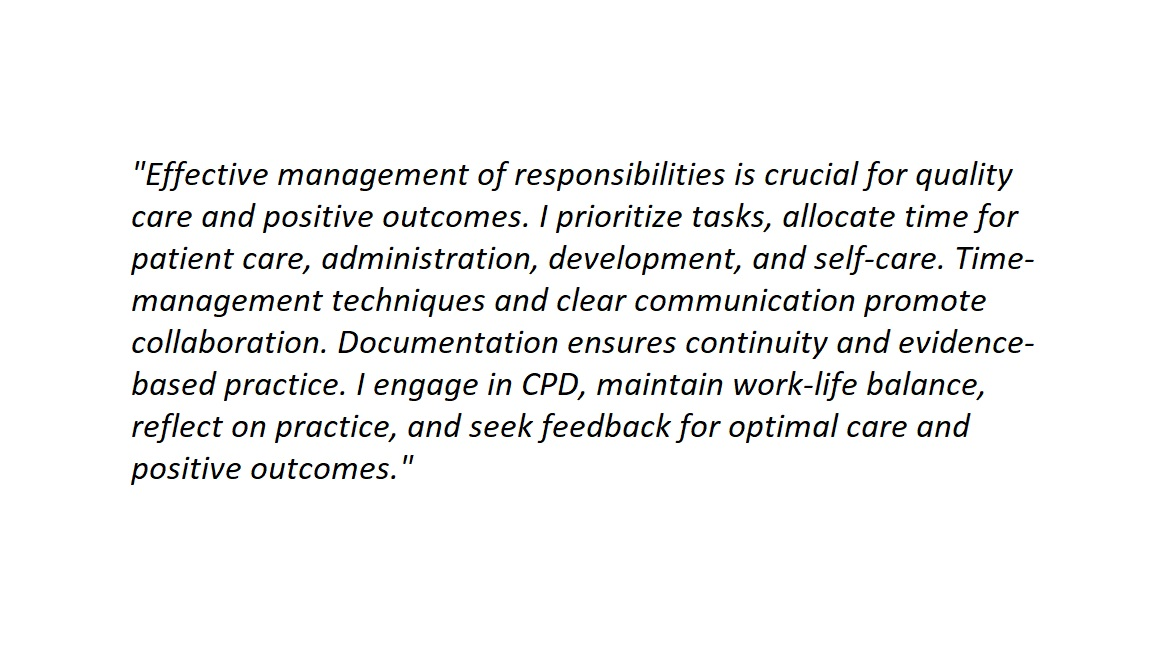
10. Can you describe a situation where you’ve experienced a difficult patient or dealing with a difficult situation?
Dealing with difficult situations is something every physiotherapist will encounter at some point. Give specific examples of how you’ve handled difficult situations in a professional and effective manner, and show how you remain patient, empathetic, and compassionate to their mental health.
Suggested Answer:
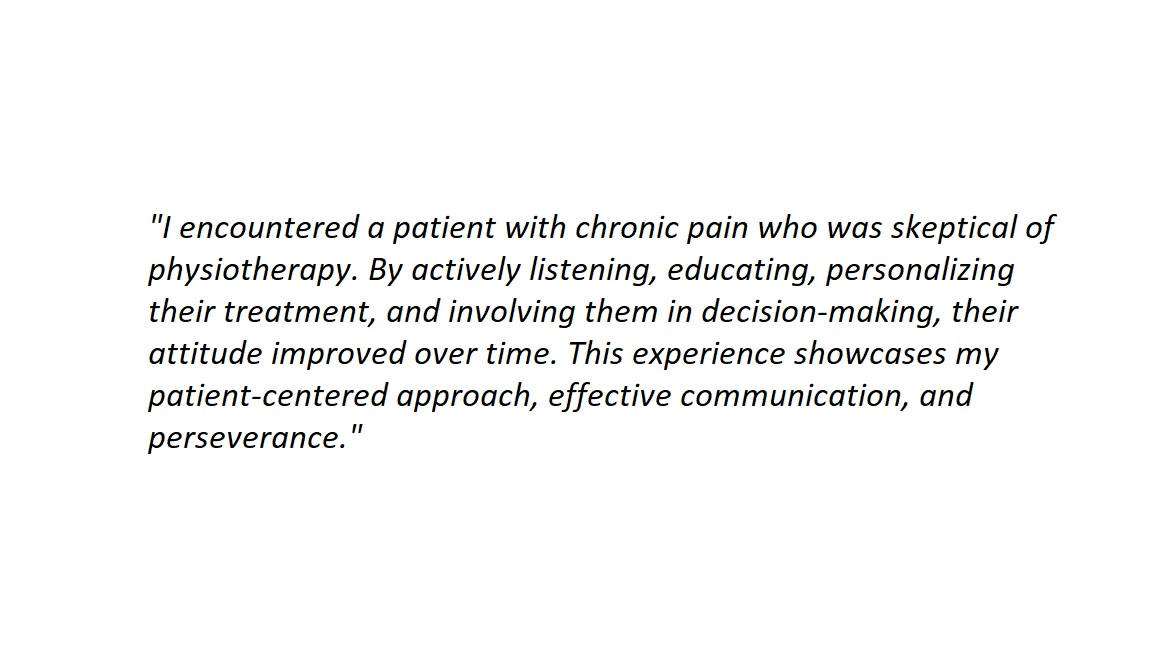
11. How do you ensure the maintenance of accurate and up-to-date patient records and documentation?
Accurate and up-to-date patient records and documentation are vital for Band 6/7 physiotherapists. Maintaining such records plays a critical role in providing high-quality care, effective communication, continuity of care, and legal compliance.
Suggested Answer:
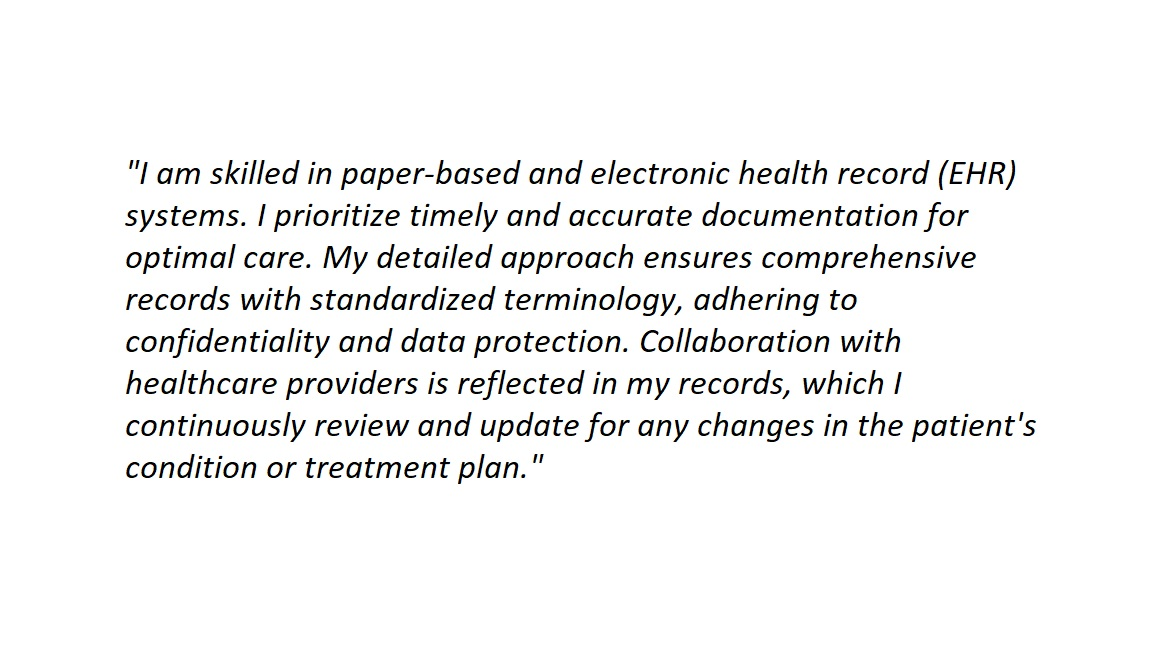
12. Can you provide an example of a situation where you successfully motivated a patient to adhere to their treatment plan?
The ability to motivate patients to adhere to their treatment plan is critical for as a physiotherapist. It reflects commitment to patient-centered care, as well as skills in engaging patients, promoting positive health outcomes, building a therapeutic alliance, optimising healthcare resources, and enhancing patient satisfaction. Implementing effective motivational strategies is key to demonstrating professional expertise.
Suggested answer:
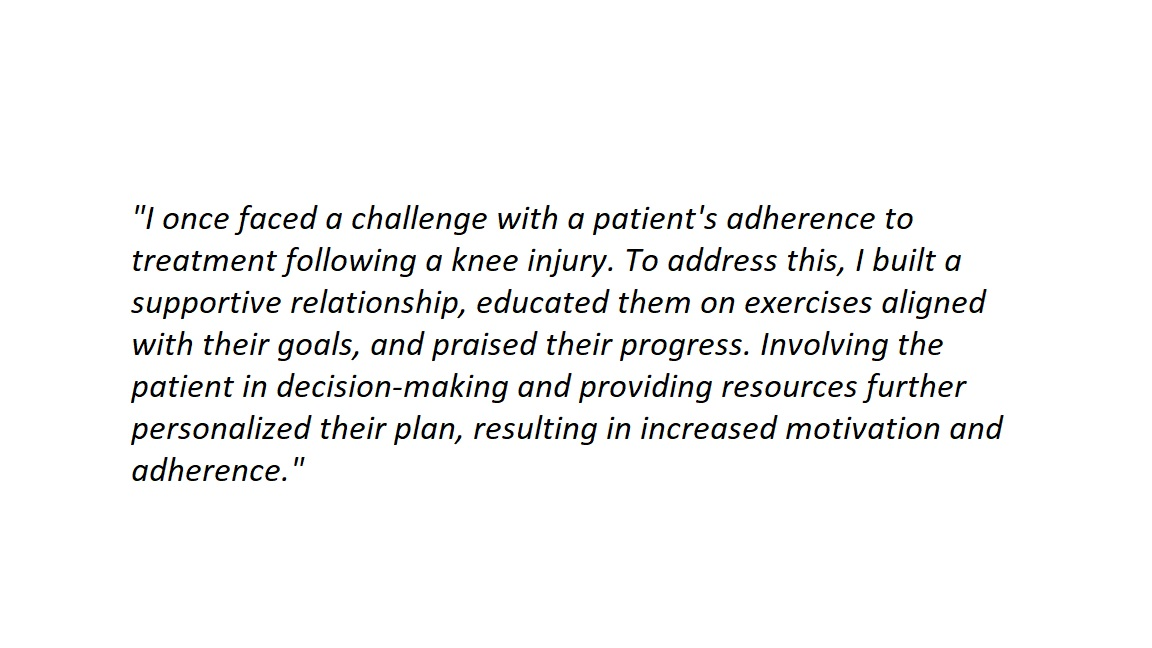
13. How do you incorporate evidence-based practice into your clinical decision-making process?
Integrating evidence-based practice in clinical decision-making guarantees that interventions are grounded on the most reliable evidence, conform with professional policies, value patient preferences, and enhance patient outcomes. Persisting in this method reinforces the provision of excellent, efficient, and patient-focused care.
Suggested answer:
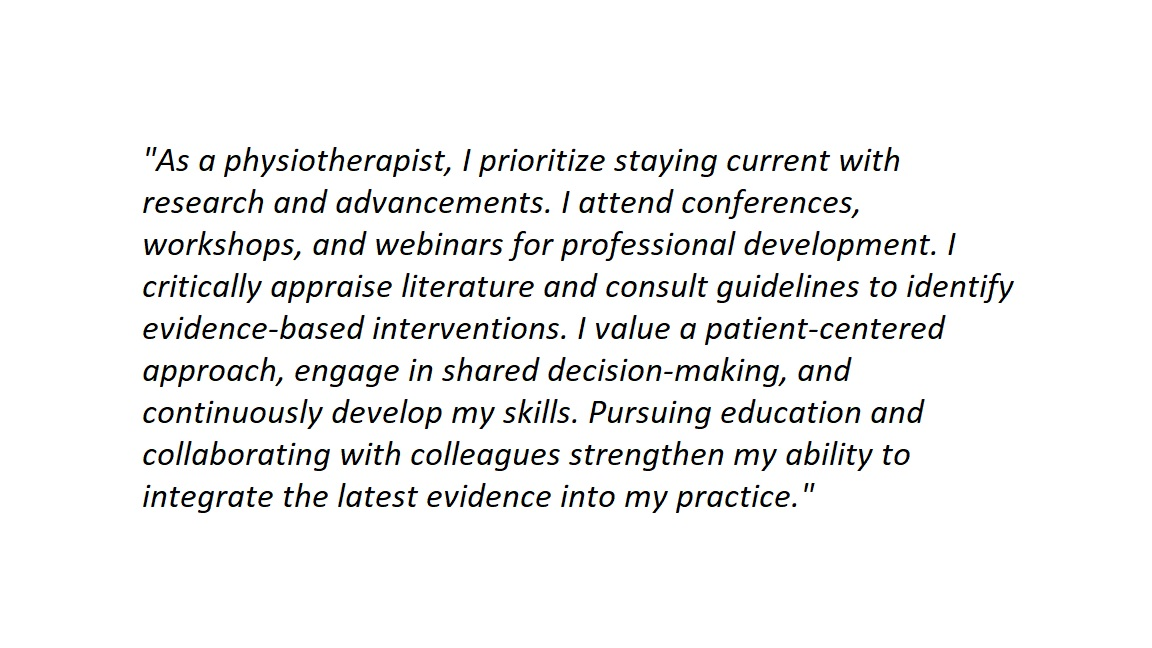
14. Describe a time when you had to adapt your treatment approach to meet the cultural or individual needs of a patient.
This question assesses your proficiency in acknowledging and handling cultural variances, adjusting your approaches as necessary, and administering tailor-made care that upholds and combines the patient’s cultural values and choices. By showing cultural consciousness and modifying your treatment plans accordingly, you guarantee that patients receive customised care that is sensitive to their distinctive requirements and fosters favourable health results.
Suggested answer:
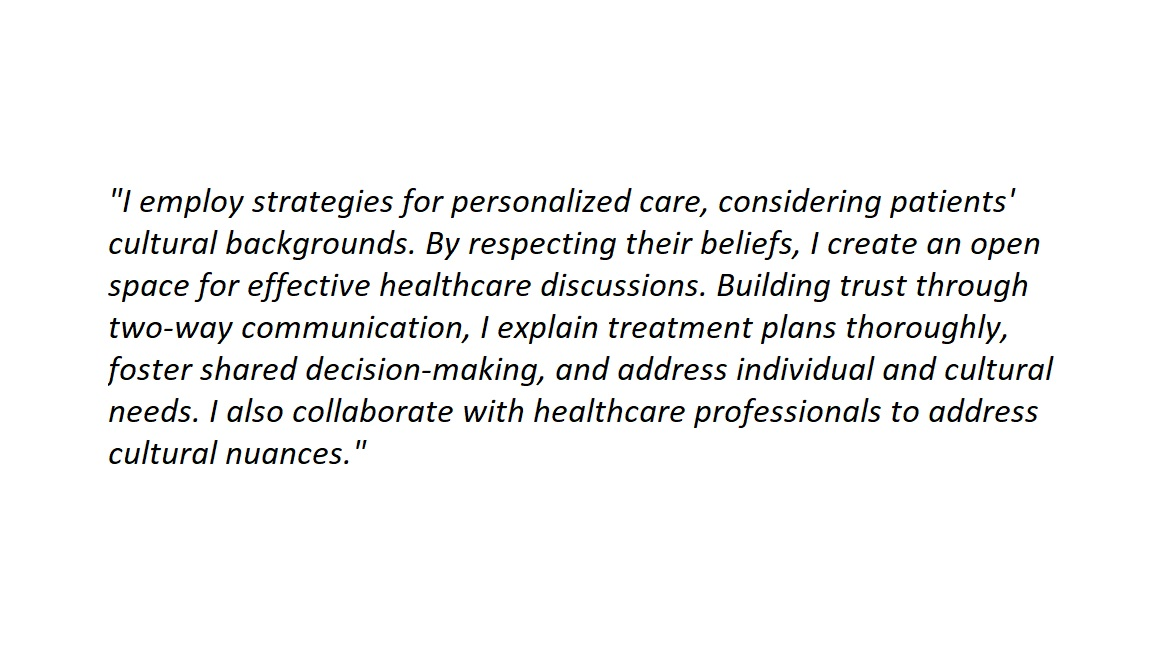
15. How do you handle situations where a patient’s progress is slower than expected or where treatment goals are not being met?
To ensure that patients receive the best possible treatment, it’s crucial to take a patient-centered approach in handling situations where progress is slower than anticipated or treatment goals are not being met.
This involves providing the necessary support, modifications, and encouragement to help them overcome challenges and continue on their rehabilitation journey. By adopting this proactive approach, you can promote open communication, shared decision-making, and an unwavering focus on optimising outcomes for each individual under your care.
Suggested answer:
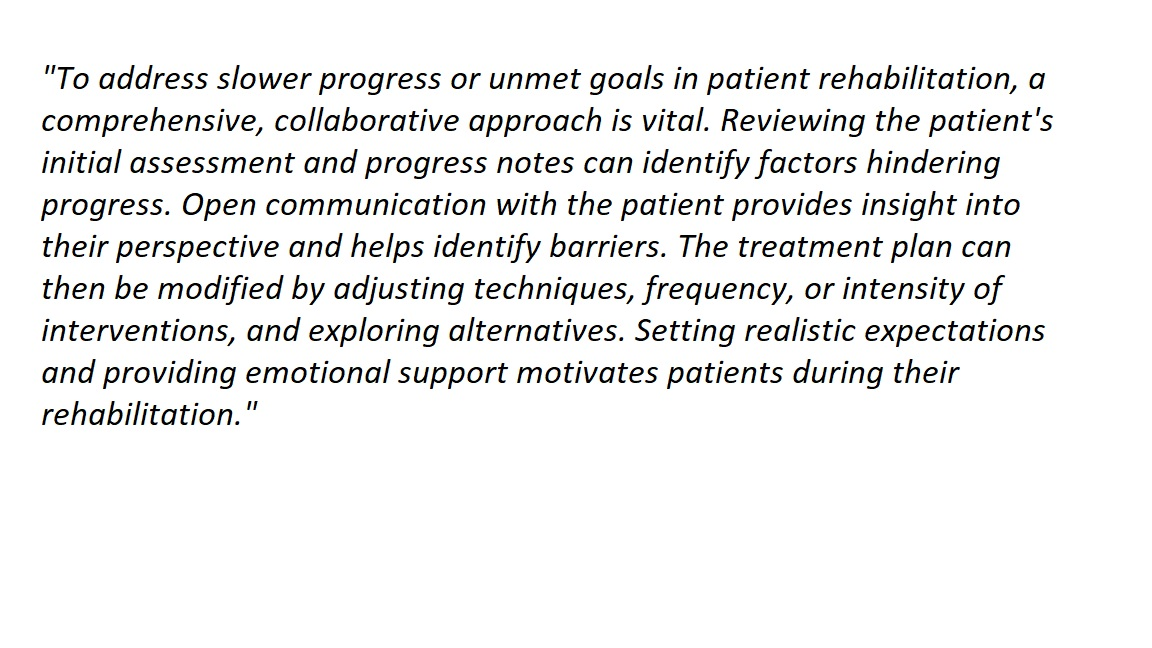
Conclusion:
Preparing for a job interview & job interview questions can be nerve-wracking, but with the right preparation, you can go in feeling confident and well-equipped to answer any question that comes your way. Being a successful candidate is not just about answering basic questions, it’s about demonstrating all the necessary skills, knowledge, and experiences that make you an ideal candidate.
So, take the time to prepare thoroughly by practicing mock interviews , reviewing resources, and seeking advice from an interview coach. Remember to stay focused on the job requirements, stay positive, and show the interviewer that you are the right person for the job with your answers. By following these top tips, you’ll be one step closer to your dream job and a fulfilling career as a physiotherapist.
Ready to take your career to the next level? Look no further than our job board, featuring hundreds of exciting Physio openings just waiting for someone like you. Don’t miss this opportunity to land your dream job and make a difference in the industry.
